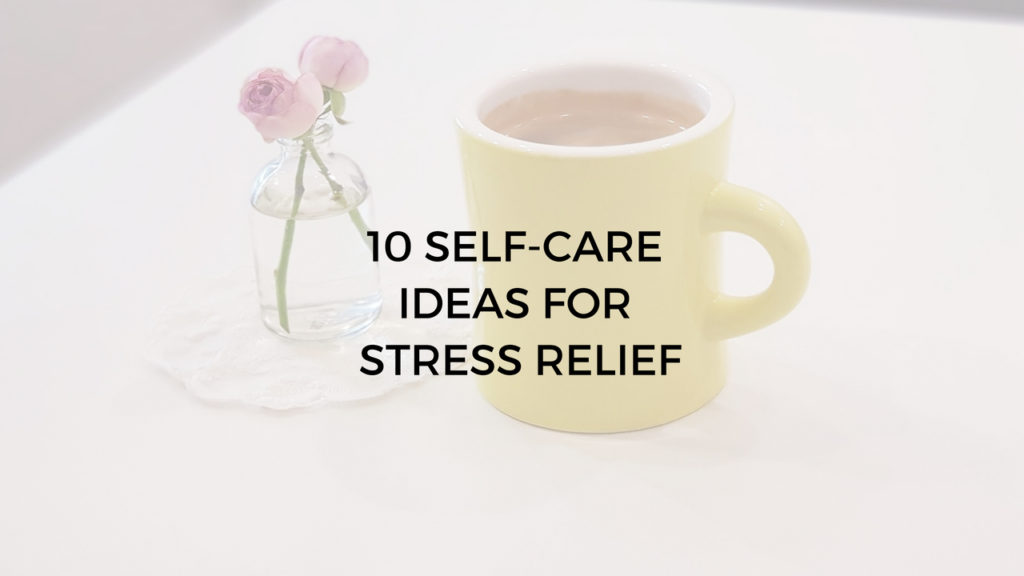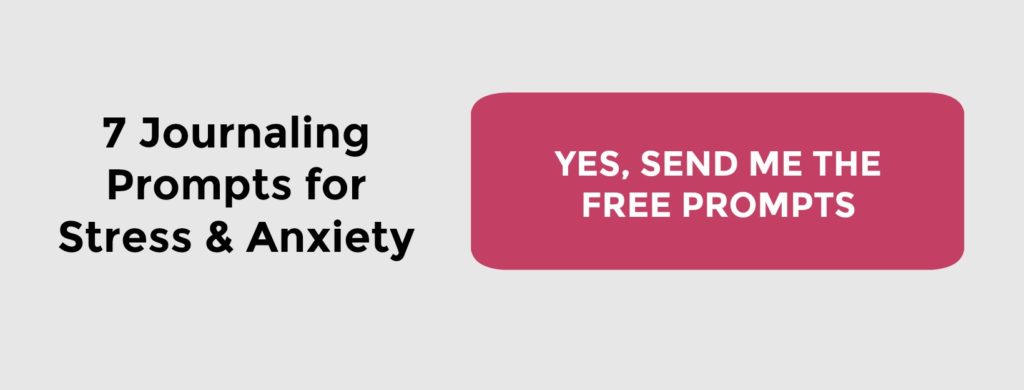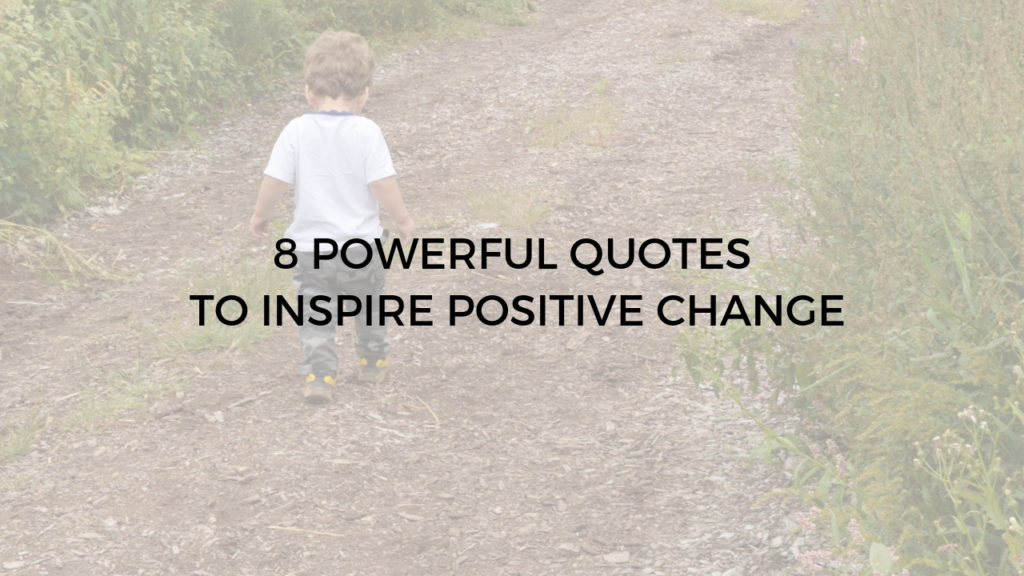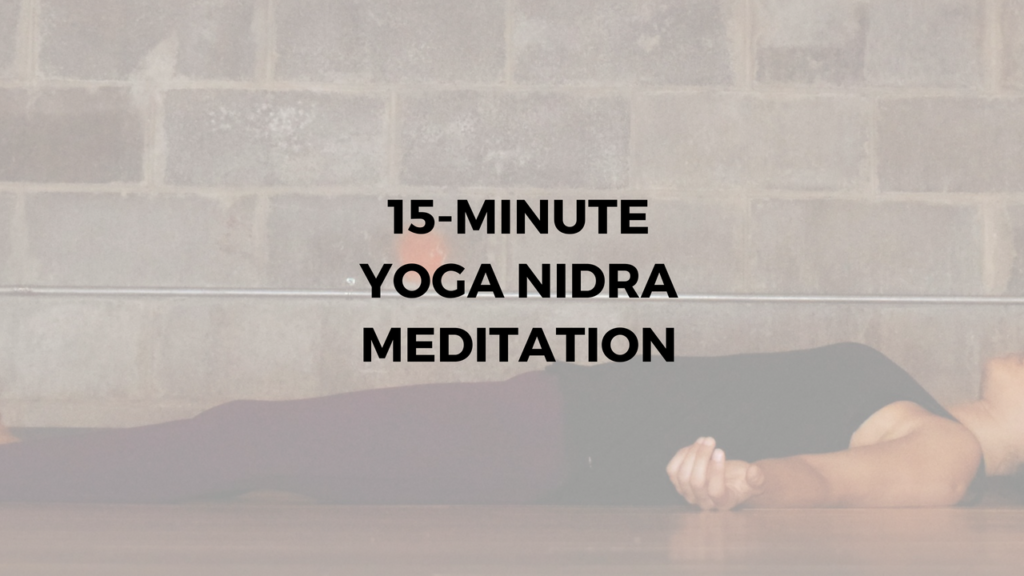How serendipitous it is that before I sat down to write this post, I was listening to Melyssa Griffin’s podcast about a successful executive who neglected her health for years before she suffered a serious stress-related illness. The eye-opening experience caused her to make drastic changes in the way she balanced her work and life.
Unfortunately, this is not very uncommon and it is a huge problem. It seems that most people need to have an eye-opening experience before making the necessary changes to regain their health and well-being.
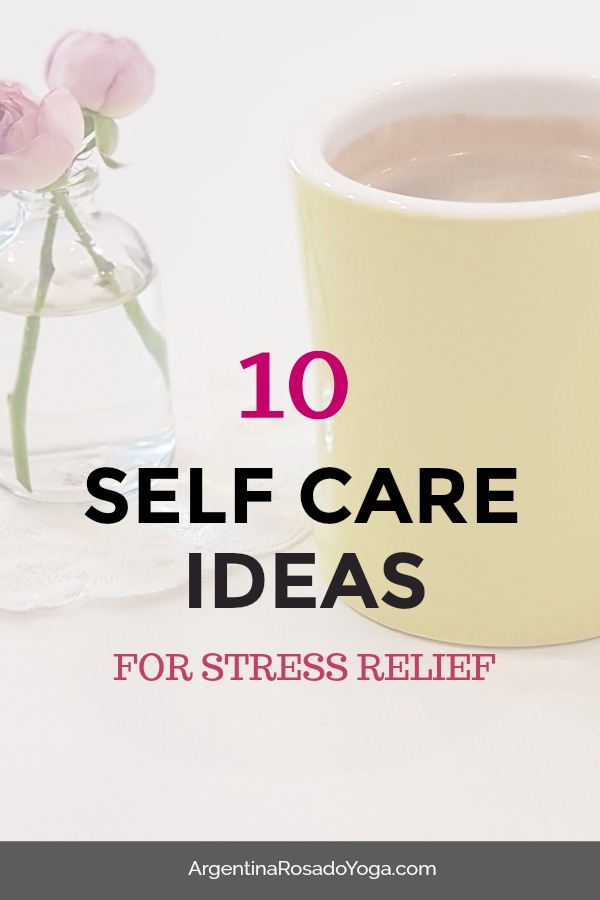
It’s also very unfortunate to see that for some people, self-care translates to an act of selfishness or not caring others. But that is just not true. Why? Because we cannot pour from an empty cup. And, whatever is in our cup, is what we’ll be pouring onto others. When we are stressed, overwhelmed, or angry, we react to the little things, which also affects the people around us.
For instance, when I am stressed out, feeling down, or holding things in, I tend to not want to go out as much. As a result, my dog doesn’t get the walks that he needs in order to be healthy and happy. So my inability to take care of myself, affects his well-being.
So before we can take care of others, we need to take care of ourselves. Here are some self care ideas to help you disconnect and manage daily stress.
1. A Morning Walk
A morning walk is not only good for our physical health, but it’s also a meditative practice that promotes mindfulness and present moment awareness. The best time to go for a walk is during the quiet, early morning hours or right around sunrise. Bring your smartphone with you so you can write down thoughts and ideas as they come up. You can also take photos of the beautiful scenery around you. It’s a simple, therapeutic, and very effective way for improving our physical and mental health.
2. Journaling
Journaling is another way to practice mindfulness as it allows us to record our thoughts and feelings, while helping us be more in control and aware of the present moment. Journaling can be done in many different ways and for different reasons (goal setting, creativity, healing, etc.). It’s a powerful technique that helps to release stress by simply writing about it and promoting self-knowledge and emotional healing.
3. Time in nature
The health benefits of spending time in nature are very well known. There are scientific studies showing that spending time in nature can significantly reduce the risk of heart disease (blood pressure, cholesterol) and improve overall well-being. Being in nature somehow slows down the pace of things.
For instance, I was recently leading my spring awakening yoga retreat at Laguna de Apoyo in Nicaragua. Laguna de Apoyo is a natural wonder that may just take your breath away. When you’re there, you’re basically surrounded by nature all around, with monkeys swinging all over, coconuts falling off the trees, and a volcanic crater that you just have to see to believe. We were all so disconnected that it was easy to lose track of time, not knowing what day or what time it was. The laguna, on its own, was a therapeutic and healing experience.
FREE Yoga Nidra for Anxiety

4. A Wellness Retreat
The best part about yoga and wellness retreats is that you can attend by yourself and still connect and engage with others. There are many types of retreats that cater to different self-care needs (silent retreats, detox, meditation, hiking, yoga, etc.)
For example, the spring awakening yoga retreat is great for those looking to connect with nature, set intentions (as it is held during spring equinox), and cleanse the physical body with yoga and its gluten free, plant-based cuisine. The Colombia Yoga Retreat is another peaceful retreat that also provides an opportunity to engage with Colombia’s amazing culture and historic roots. It is also great for spending time alone, disconnect, relax, and recharge.
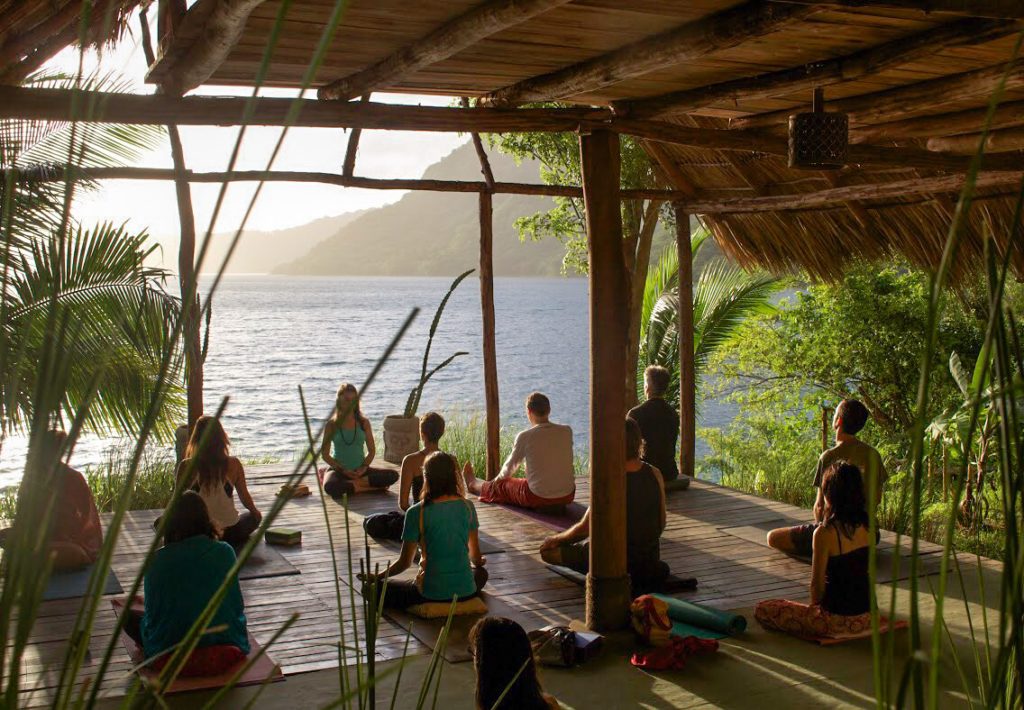
5. Meditation
Meditation is yet another form of mindfulness practice that promotes self-awareness, self-discovery, and healing. There are many meditation techniques and they all promote physical and mental health and well-being. The most well-known benefits include stress reduction, improved concentration, improved creativity, and cardiovascular health, just to name a few.
It’s important to understand that meditation should not be used as a quick fix for anything, or to shut down your thoughts. Meditation is a practice and the more you do it, the more you’ll be able to see its benefits in your daily life.
6. Aromatherapy
Aromatherapy is a form of alternative medicine that has been around since ancient times. Pure essential oils are extracted directly from medicinal plants and promote health and well-being. Here are my favorite oils that help reduce stress:
7. Restorative or Yin Yoga
Now, we know that any type of yoga constitutes self-care, but there is something about restorative and/or yin yoga that allows us to slow down and move into stillness and deep relaxation. I personally love restorative or yin yoga at the end of a stressful week. I always recommend to my clients that they practice some form of restorative yoga at least once a week.
8. Yoga Nidra
Yoga Nidra is a guided meditation that is done lying down in Shavasana (Corpse pose). It uses body scanning, breath awareness, and imagery to induce a hypnagogic state that takes us into deep relaxation and healing. The great thing about Yoga Nidra is that it connects us with our subconscious and unconscious state of being. Because of this, Yoga Nidra is a great way to treat conditions like insomnia, anxiety, chronic stress, depression, and past traumas.
9. Ayurvedic self-massage (Abhyanga)
Abhyanga is an ayurvedic remedy that involves massaging the entire body with a warm oil.
It has many health benefits including calming the nerves, improving circulation, and relieving stress and anxiety.
Here’s how-to:
Pour ¼ cup of sesame oil in a heatproof bowl. Fill a medium saucepan with a couple of inches of water and bring to a simmer over medium heat. Place the bowl with the sesame oil to warm-up. The oil should be warm, but not super hot. Massage the oil starting at the head and working your way down towards the feet. Leave for 10-20 minutes, but no longer than 30 minutes. Finish by removing the oil with a warm shower or bath.

10. Body Work
Bodywork is a group of therapeutic techniques that involve working with the physical and energetic bodies. Some techniques include direct contact with the physical body, while others are more metaphysical and may involve distant healing (i.e. Reiki). Here are the most common forms of bodywork that promote health and well-being:
-
- Body massage
- Reiki
- Cupping
- Trigger point therapy
- Reflexology
- Craniosacral Therapy
